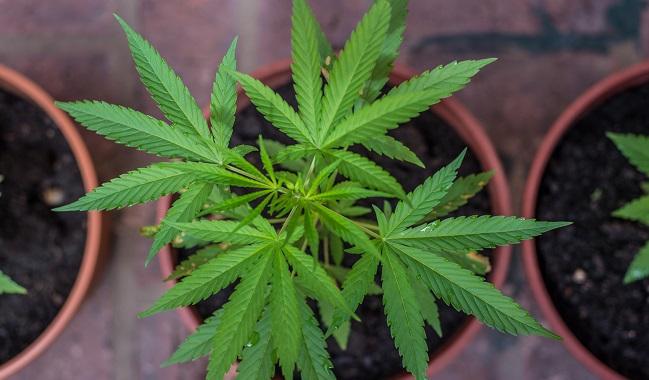Study Links Marijuana Use to Hypertension-Related Death
Marijuana use might be more harmful for CV health than cigarette smoking, researchers suggest, but one expert disagrees.

Using marijuana is associated with a threefold higher risk of dying from hypertension, according to a recent retrospective study. There are also hints that the longer a person uses the drug, the higher his or her risk will be.
Individuals who used marijuana faced a relative—but nonsignificant—increase in risk of 0.4% for each year of use, researchers found.
“Steps are being taken towards legalization and decriminalization of marijuana in the United States, and rates of recreational marijuana use may increase substantially as a result,” Barbara A. Yankey (Georgia State University, Atlanta), a doctoral student and the study’s lead investigator, said in a press release. “However, there is little research on the impact of marijuana use on cardiovascular and cerebrovascular mortality.”
Ike S. Okosun, PhD (Georgia State University), senior author on the paper, which was published online recently in the European Journal of Preventive Cardiology, told TCTMD that physicians need to take patients’ marijuana use and other drug use just as seriously as they have “traditional smoking.” In light of the debate over whether or not to legalize marijuana, Okosun explained, “the same way we have been very prudent to look into cigarette smoking, we should also be very prudent about ascertaining whether or not patients use marijuana.”
Risk Seen With Marijuana but Not Tobacco
Yankey et al gathered data on individuals ages 20 and older who reported information on their marijuana use from 2005 to 2006 through the US National Health and Nutrition Examination Survey (NHANES). Corresponding mortality data were collected from the National Center for Health Statistics and the Centers for Disease Control and Prevention.
The investigators assessed 1,213 participants for 19,569 follow-up years; four percent smoked cigarettes only, 5% had either previously smoked tobacco or used marijuana, 21% used marijuana only, 34% didn’t use either substance, and 20% currently used both cigarettes and marijuana. On average, participants who used marijuana did so for 11.5 years.
Initially, Yankey and her colleagues found no difference in the unadjusted risk of hypertension-related death for either cigarette smokers or marijuana users. Nor were there differences in in risks of mortality stemming from heart- or cerebrovascular-disease. All-cause mortality was slightly elevated among marijuana users (incidence rate ratio [IRR] 1.29; 95% CI 1.03-1.61) but not among tobacco smokers (IRR 1.16; 95% CI 0.90-1.48).
But after adjustment for various comorbidities, alcohol use, demographic factors, and other potential confounders, the use of marijuana was linked to a higher risk of hypertension-related death. For every year that the participant had used marijuana, the risk trended higher. Notably, tobacco smoking showed no such links to death even with adjustment. The authors did not report data for the adjusted risk of all-cause mortality.
Risk of Hypertension Related Death With Marijuana Use
|
|
Adjusted HR |
95% CI |
|
Overall |
3.42 |
1.20-9.79 |
|
Per Additional Year of Use |
1.04 |
1.00-1.07 |
The elevated risk of hypertension-related death “is not surprising since marijuana is known to have a number of effects on the cardiovascular system,” she explained in the press release. “Marijuana stimulates the sympathetic nervous system, leading to increases in heart rate, blood pressure, and oxygen demand. Emergency rooms have reported cases of angina and heart attacks after marijuana use.”
Some Red Flags
Asked to comment on the findings for TCTMD, Kenneth Alan Jamerson, MD (University of Michigan, Ann Arbor), noted that while the NHANES database is important, its information regarding illicit drug use might be unreliable as it was collected by doctors and nurses at participants’ homes. “So you come to somebody’s home and you ask them about marijuana usage, well you’re not going to get the greatest data,” Jamerson said, “So that’s a limitation.”
And though the researchers efforts are worthwhile, he added, it’s not a given at this point that marijuana is harmful. “Recreational use of drugs like marijuana and alcohol at low, moderate levels has actually been shown to be kind of positive,” Jamerson reported.
Recreational use of drugs like marijuana and alcohol at low, moderate levels has actually been shown to be kind of positive. Kenneth Alan Jamerson
What’s unusual about the current study, Jamerson explained, is that researchers only reported adjusted data for mortality associated with hypertension, not with heart or cerebrovascular disease. “You would think that the marijuana if it was working on the vascular system to cause some damage, it should cause stroke, it should cause heart disease; it shouldn’t [only] cause hypertension,” he commented. “And you wouldn't understand in this particular setting why the effect of marijuana was more than cigarettes when we know clearly that cigarettes have an effect.”
The findings imply you can “smoke [tobacco] all you want, nothing will happen to you, but if you do marijuana you are going to die,” Jamerson observed. “And when you put those it context, it makes this seem like there are probably some methodological problems, where they came up with some associations that don’t really set a strong clinical picture.”
According to Okosun, “The take-home message is that marijuana use may be . . . associated with cardiovascular diseases, but the verdict is really not out yet because we are still accumulating information and data. But our preliminary assumption is that it might [have] some implications for subsequent development of cardiovascular disease.”
Ashley Lyles is the 2017 recipient of the Jason Kahn Fellowship in Medical Journalism. She is currently a graduate student…
Read Full BioSources
Yankey BA, Rothenberg R, Strasser S, et al. Effect of marijuana use on cardiovascular and cerebrovascular mortality: a study using the National Health and Nutrition Examination Survey linked mortality file. Eur J Prev Cardiol. 2017;Epub ahead of print.
Disclosures
- Yankey and Okosun report no relevant conflicts of interest.
- Jamerson reports research funding from National Institutes of Health and Bayer Pharmaceuticals.


Comments